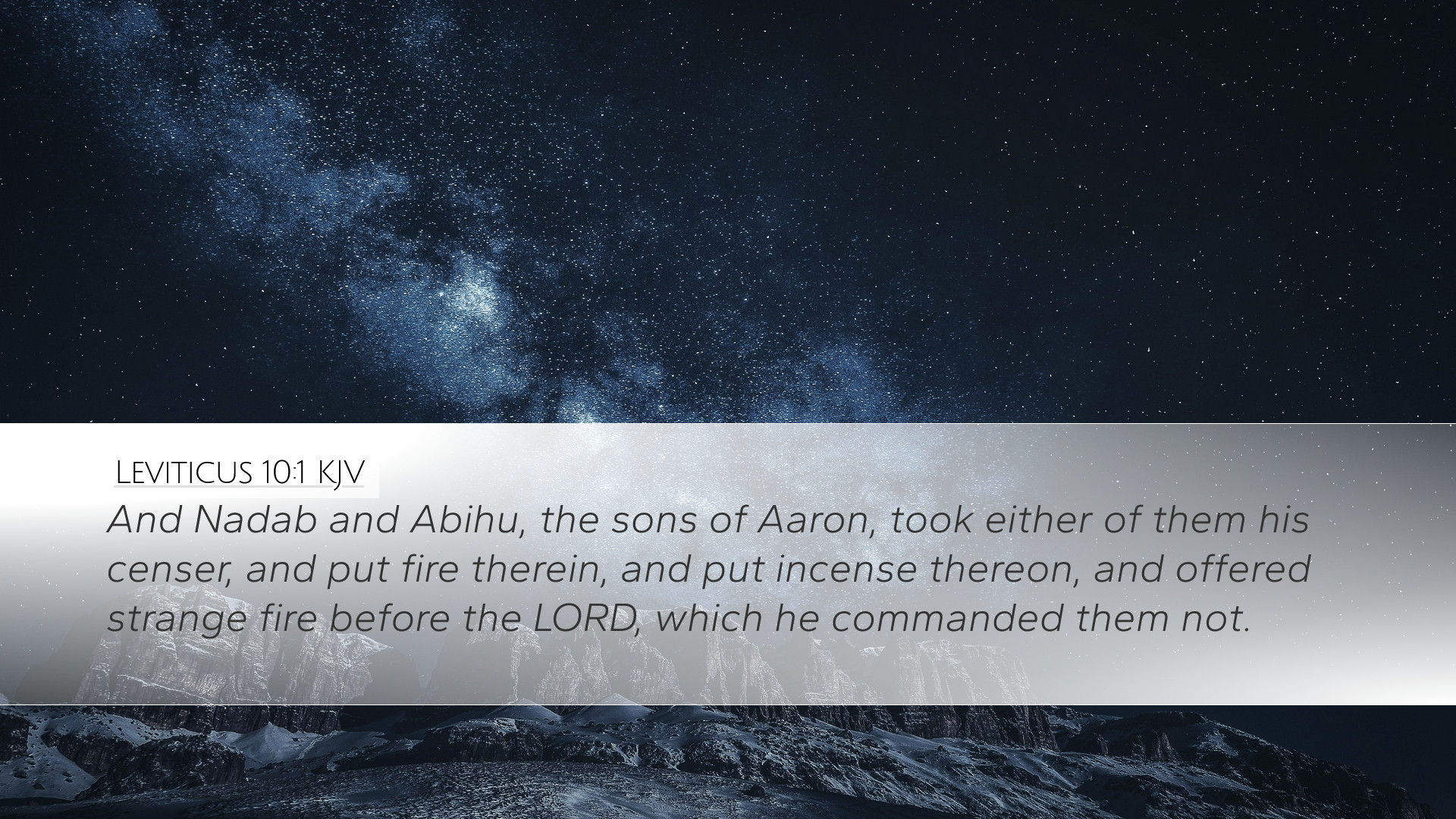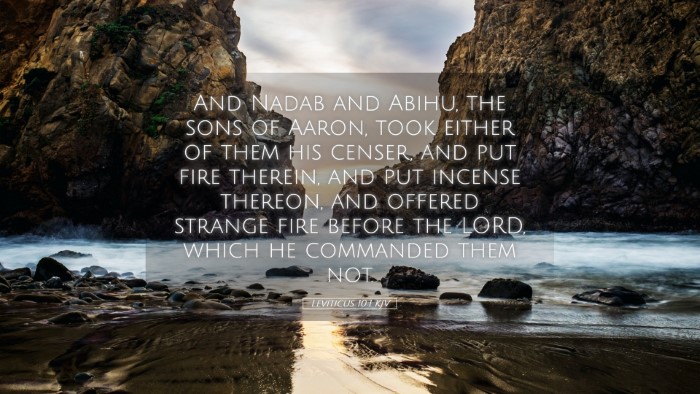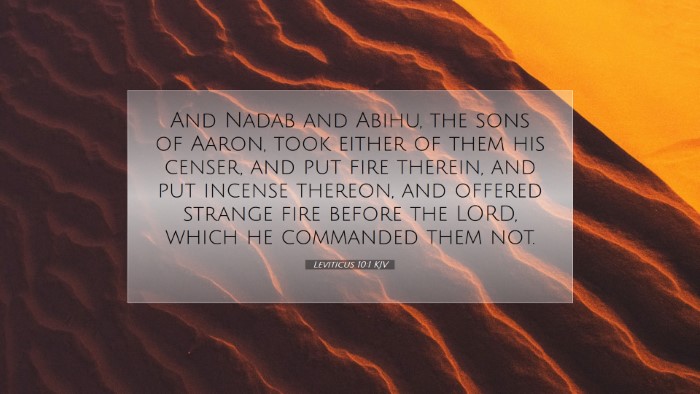Commentary on Leviticus 10:1
Leviticus 10:1 presents a significant moment in the narrative of the Israelites, particularly in relation to the duties and responsibilities of the priesthood. This verse reads:
“And Nadab and Abihu, the sons of Aaron, took either of them his censer, and put fire therein, and put incense thereon, and offered strange fire before the Lord, which he commanded them not.”
Overview and Context
To understand this verse, one must appreciate the context surrounding Nadab and Abihu's actions. These were the sons of Aaron, ordained priests who had been consecrated for service in the newly established worship system of the Israelites after their escape from Egypt. According to the Levitical code established by God, specific instructions were given concerning the priestly duties, particularly concerning offerings and the use of fire.
Insights from Public Domain Commentaries
Matthew Henry's Commentary
Matthew Henry emphasizes the gravity of Nadab and Abihu’s error, noting that they acted contrary to God’s explicit commands. He states:
“Their offering of strange fire was not only an act of disobedience but a willful denial of the established order in divine worship.”
Henry interprets 'strange fire' as fire that was not taken from the altar, which represents the divine provision and presence of God. He highlights the dangers of approaching God on one's own terms rather than adhering strictly to His instructions. The consequences of their actions serve as a sobering reminder of the holiness of God and the seriousness of worship.
Albert Barnes' Notes
Albert Barnes expands on the concept of ‘strange fire,’ suggesting that it symbolizes any approach to worship that deviates from God’s ordained method. He clarifies:
“The fire was strange both in being unauthorized and in being offered without the due order of God. It illustrates the principle that God requires a solemn and reverent approach in all matters of worship.”
Barnes also notes that Nadab and Abihu’s actions reflect a spirit of irreverence. Reflecting on their character, he concludes that their pride and hasty actions led to their downfall, thereby providing a strong lesson for all in positions of spiritual leadership.
Adam Clarke's Commentary
Adam Clarke provides a detailed examination of what constituted 'strange fire.' He discusses how this term signifies the unauthorized manner of worship that can provoke God’s wrath:
“Strange fire signifies not merely the incense offered, but the manner of the offering. The expression shows us that God will not accept of any offerings that are not made according to His law.”
Clarke notes the cultural implications, pointing out that Nadab and Abihu might have been influenced by surrounding nations’ practices. He outlines the principle that worship must align with God’s revealed will, warning against syncretism and the blending of pagan practices with true worship.
Theological Implications
The actions of Nadab and Abihu stand as a poignant reminder to New Testament believers concerning worship and the holiness of God. These priests suffered immediate judgment, reflecting the serious nature of their disobedience:
- The Holiness of God: Their judgment underscores God's holiness and the critical nature of obeying His commands in all aspects of worship.
- Authority in Worship: It reinforces the necessity of adhering to biblical principles when approaching God in worship and ministry.
- Care in Leadership: For pastors and leaders, it serves as a caution against flippancy or carelessness in fulfilling their responsibilities.
Lessons and Applications
Pastors, students, and scholars can glean valuable lessons from this verse:
- Reverence in Worship: Approach to God must be characterized by reverence and adherence to His prescribed ways. Disregarding this leads to serious consequences.
- Consequences of Disobedience: The immediate judgment of Nadab and Abihu serves as a powerful reminder of God’s justice and the seriousness with which He takes worship.
- Continuous Reflection: Believers should regularly reflect on their worship practices, ensuring they align with Scripture and respect God’s holiness.
Conclusion
Leviticus 10:1, through the tragic account of Nadab and Abihu, provides profound insights into the nature of God, the seriousness of worship, and the importance of obedience in the priestly role. By studying this verse closely, as illustrated by the commentaries of Henry, Barnes, and Clarke, contemporary readers and leaders can gain a deeper appreciation for the holiness of God and the sacred nature of approaching Him in worship.


